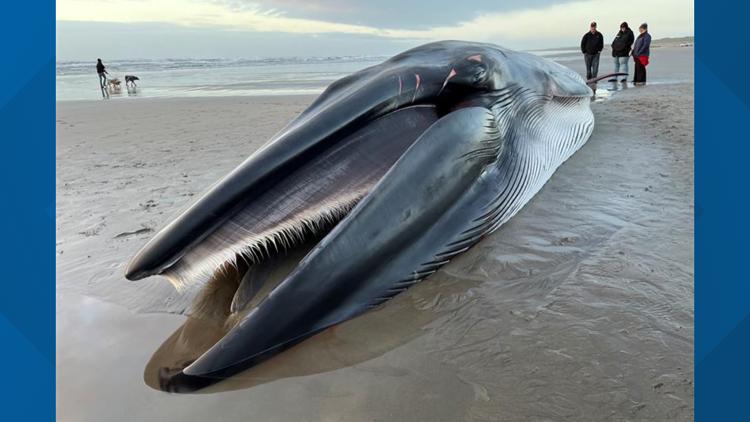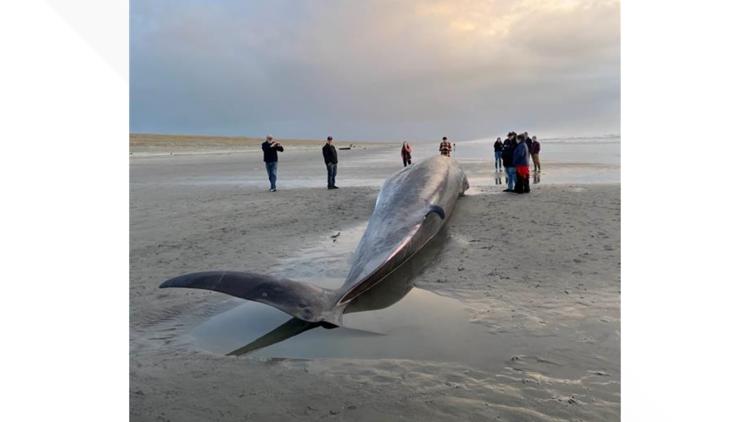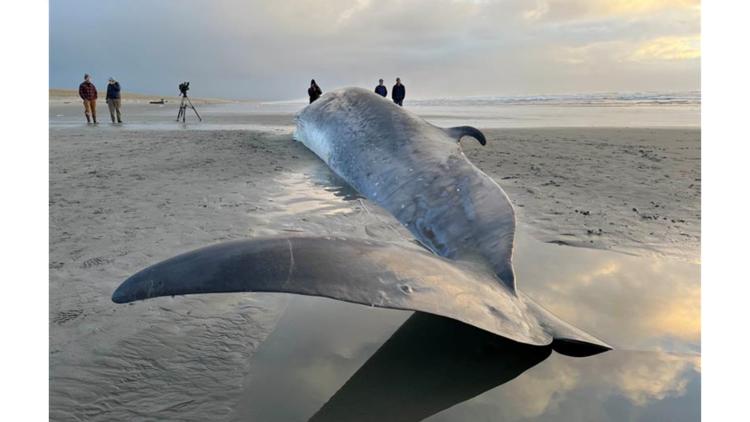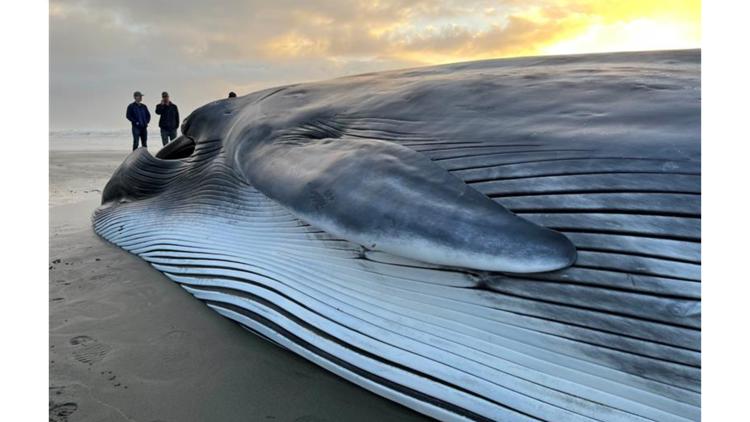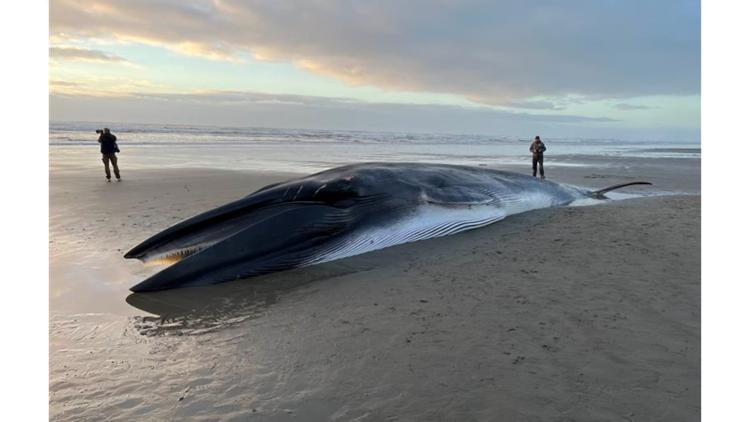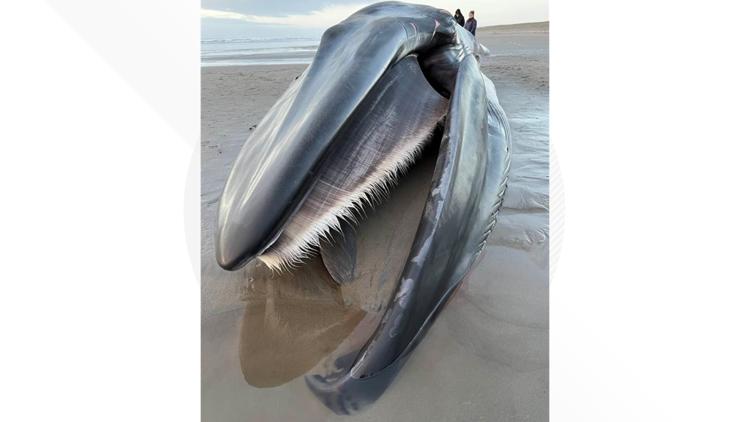WARRENTON, Ore. — A dead whale washed up along the Oregon coast on Monday morning, according to the National Oceanic and Atmospheric Administration.
In an email to KGW, the National Oceanic and Atmospheric Administration confirmed that a dead fin whale washed up on Sunset Beach in Warrenton, Ore. near Astoria. Although it's unclear as to exactly when the whale washed up along the beach, it's believed to have happened very early Monday morning.
The National Oceanic and Atmospheric Administration (NOAA) performed a necropsy Tuesday. A necropsy, similar to an autopsy on humans, allows for researchers to determine the cause of death and learn more about the whale.
The whale was believed to be a young male, recorded to be about 46 feet long, according to the NOAA.
The NOAA also found that the whale was weak, and suspect that its death was likely due to an "underlying illness" of some kind. There were some ropes around the dead whale that caused superficial injuries, but did not appear to be fatal, according to NOAA. The whale carcass had some "rake marks" stemming from the teeth of killer whales, but were not considered to be deadly. Once the findings of the collected tissue samples are tested, NOAA will be able to confirm that the whale most likely died from an illness.
The state park plans to let the male whale decompose naturally, NOAA says.
PHOTOS: Fin whale washes up on Oregon Coast
In 2023, three fin whales were stranded on the West Coast, according to the National Oceanic and Atmospheric Administration.
Fin whales are the second-largest whale species on earth with the first being the blue whale, according to the NOAA. The name fin whales comes from its easy-to-spot fin on its back near its tail. Fin whales weigh 40 to 80 tons, range from 75 to 85 feet long, with a life span of 80 to 90 years. They are typically found in Alaska, New England/Mid-Atlantic, the Pacific Islands, the Southeast and the West Coast.

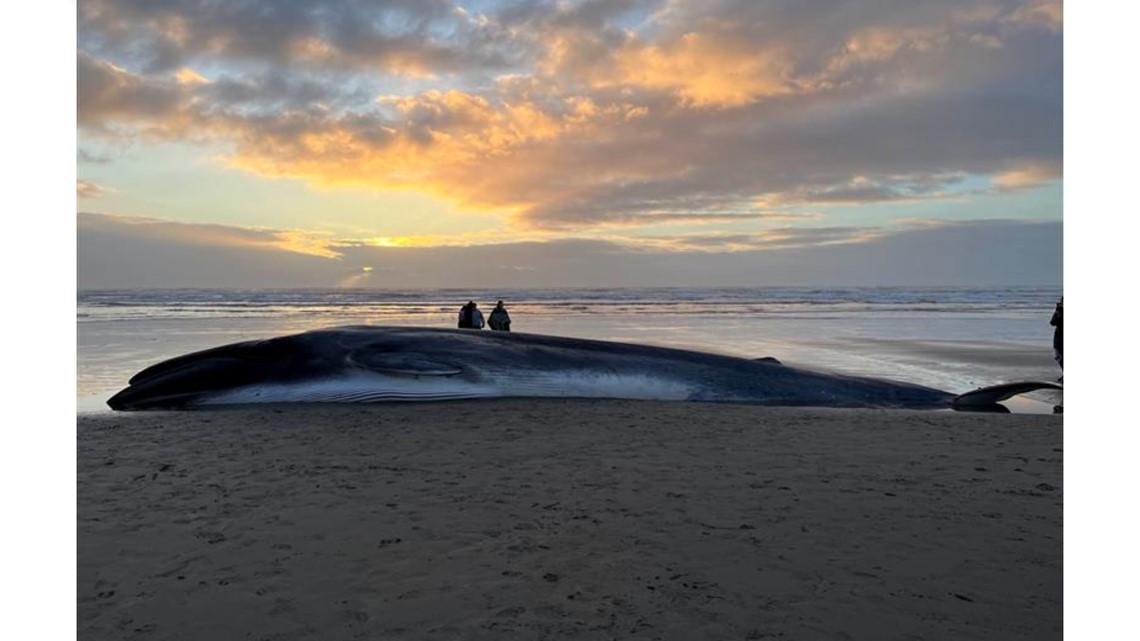
In January of 2023, three dead whales washed up on the Oregon coast within a span of a week — two of them were gray whales, the other was a 40-foot sperm whale.
Fin whales typically tend to be farther offshore than gray whales. There are estimated to be about 8,000 fin whales off the West Coast. During the whaling era, they were nearly driven to extinction and have been recovering ever since with increasing numbers, according to the NOAA.
The NOAA encourages the public to leave stranded marine mammals alone, and to report them to the West Coast Marine Mammal Stranding Network at 1-866-767-6114.


